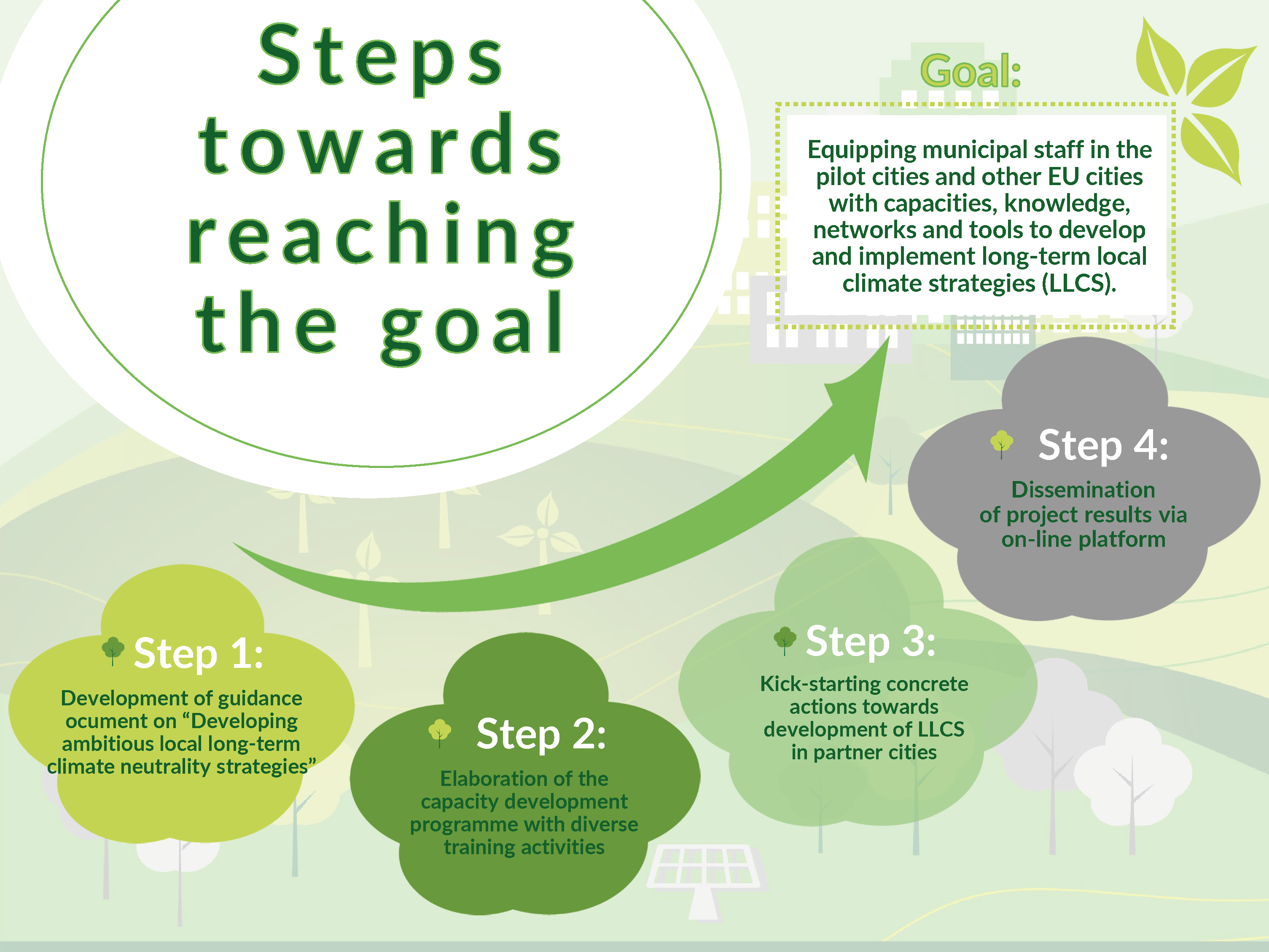Background and key challenges
The European Union has decided to become the first climate-neutral continent. With more than half of its urban population living in small and medium-sized cities, they represent key players in this endeavour. Local long-term climate neutrality strategies, that guide the cities in the process, are critical for reaching the necessary socio-ecological transformation and managing a fair transition to local net-zero emissions. Generally, local authorities are very committed to climate action and willing to take efforts towards reaching climate neutrality. Also, being the closest to the citizens they can offer solutions that are both climate and socially friendly. However, they often have limited capacities, knowledge, technical expertise and financial resources to properly plan their energy transition path.
There is a need to support smaller cities with the exchange of knowledge and good practice,
as well as to provide capacity building and assistance helping them to plan their paths
for climate neutrality.
Project goal
To address the above-mentioned challenges, the project offers various hands-on approaches to support small and medium-sized cities in Croatia, Hungary, Poland and Romania in developing and implementing local strategies to reach climate neutrality, through:
- development of capacity, knowledge and skills among the municipality officials, staff and local stakeholders,
- fostering exchange and networking between municipalities that have decided to take steps towards achieving climate neutrality,
- elaborating context-specific guidance to developing ambitious LLCS as well as a tailored capacity-development programme consisting of a webinar series, in-person workshops in pilot cities and a study visit to Germany,
- kick-starting concrete actions in pilot cities in Croatia, Hungary, Poland and Romania to directly contribute to the implementation of climate protection measures at a local level and inspire other EU cities to follow.
- dissemination of project products and results to a broader audience beyond the pilot cities through an online platform, a communication campaign and train-the-trainer






